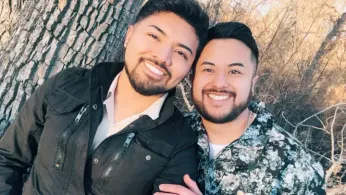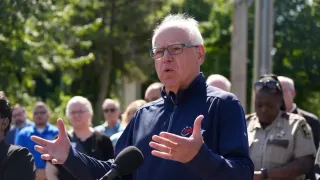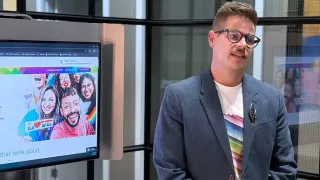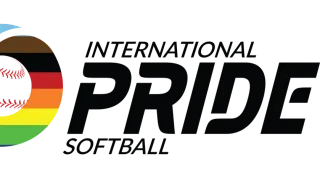
9 hours ago
TikTok Activist Eric Duran Thanks Supporters as He Battles to Free Boyfriend Juan from ICE Detention
READ TIME: 4 MIN.
Eric Duran, known for his advocacy and storytelling on TikTok, has become a visible figure in the struggle to free his boyfriend Juan from ICE detention. Since July 21, Duran has shared regular updates with his growing network of followers, documenting the hardships, setbacks, and moments of hope as he navigates the complex and often opaque world of U.S. immigration enforcement. On Sunday, August 31, Duran expressed his gratitude to supporters in a heartfelt TikTok post, confirming that Juan had been relocated to a facility in Louisiana after previous stays in Colorado and Arizona. The update marked a small victory in Duran’s search for information, achieved through community connections and the ICE locator system, after weeks of uncertainty about Juan’s whereabouts .
Duran’s public posts reveal the exhausting nature of his advocacy—both physically and emotionally. He describes the process as “labour-intensive and mentally taxing,” citing the barriers posed by ICE’s procedures, lack of transparency, and frequent transfers that disrupt legal proceedings. Duran recounted that Juan was moved just before a scheduled bond hearing, a tactic he believes is calculated to deny due process and prolong detention. At one point, conflicting information led him to believe Juan had been “sent home,” only for that to be proven false. Such confusion is common for families of those detained by ICE, who often struggle to locate loved ones and secure accurate information .
The financial costs of pursuing legal remedies, traveling between states, and maintaining communication add to the stress. Despite these challenges, Duran has found resilience and solidarity in the supportive online community that has rallied around his cause. He credits this community for helping him confirm Juan’s location and for sustaining hope amid adversity .
Juan’s story is part of a larger pattern affecting LGBTQ+ individuals and families in ICE detention. While exact statistics are unavailable for this specific case, national advocacy groups note that LGBTQ+ immigrants face heightened risks, including harassment, lack of access to affirming health care, and increased vulnerability to abuse in detention settings . The frequent transfers between facilities—sometimes across state lines—can sever connections to legal representation and support networks, complicating efforts to secure release or fair hearings.
The American Immigration Lawyers Association (AILA) and other organizations have documented aggressive enforcement tactics since 2017, including the detention and deportation of individuals with no criminal record, DACA recipients, and long-term community members. These actions have had profound consequences for LGBTQ+ families, who may not have legal recognition, shared documentation, or other resources to support each other in times of crisis .
Duran’s use of TikTok and other social platforms demonstrates how digital media can amplify marginalized voices and mobilize support in urgent situations. His account, @duran.like.the.band, features updates, calls to action, and personal reflections on the journey to locate and free Juan. Through hashtags such as #immigration, #ice, #detention, and #lgbtq, Duran connects with audiences who share similar experiences or are motivated to help. The feedback loop of information, support, and visibility helps counter the isolation and uncertainty that often accompany ICE detention .
In his latest post, Duran writes: “The only human experience out of all of this is being able to build a community and being able to show up and support each other. That was truly how I was able to know and confirm that Juan was at the Louisiana facility. It’s on us to make sure we know where our loved ones are. All this has been so costly, all this is so physically exhausting and labour-intensive and mentally taxing. I’m so happy there is a community that wants to support in any way they can, so thank you again” .
Legal experts and advocates continue to push for reforms to make the immigration system more transparent, humane, and responsive to the needs of vulnerable populations, including LGBTQ+ people. The lack of consistent information, frequent transfers, and procedural barriers are cited as major obstacles to justice. Efforts to amend these practices include advocacy for due process rights, improved access to legal representation, and better protections for detained individuals .
Duran’s case, while unique in its details, echoes thousands of others nationwide. The community response—both online and offline—serves as a testament to the power of collective action and the importance of affirming LGBTQ+ relationships in all areas of public life.
As Duran continues to update his followers, the outcome of Juan’s detention remains uncertain. What is clear is that the case has galvanized a community of supporters and highlighted the intersectional challenges faced by LGBTQ+ immigrants. The visibility provided by social media has helped to humanize the struggles behind the headlines and offer practical support to those in need.
Advocates encourage those moved by Duran’s story to contact elected officials, support legal aid organizations, and speak out against policies that harm LGBTQ+ families. For many, the fight for justice is ongoing, and every act of solidarity helps move the needle toward greater equity and inclusion.






